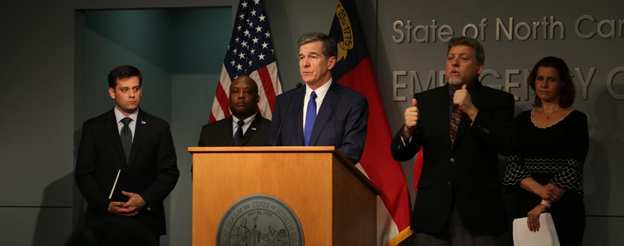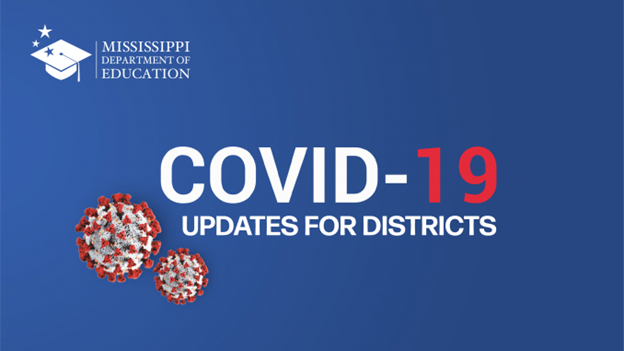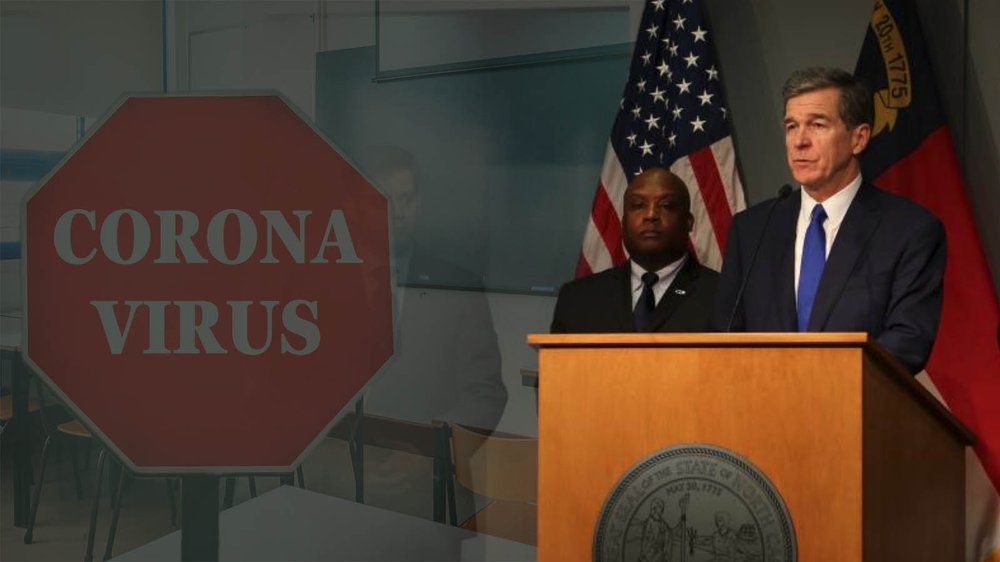Governor Cooper directs funding to schools to teach, feed students during COVID-19 – By Dalisa Robies, WNCT
Governor Cooper directed $50 million in school funding flexibility to help public schools and support the greatest need to serve students during the COVID-19 crisis.
Governor Cooper has ordered North Carolina public schools to remain closed to in-class instruction through May 15.
The State Board of Education (SBE) and the North Carolina Department of Public Instruction (DPI) will establish a new $50 million flexible allotment for public school units to address COVID-19-related expenses.
This allotment is comprised of unused funds from the current and previous school years as well as the State Emergency Response and Disaster Relief Fund.
“We are working together to provide programs and resources to ensure the continued health, safety, and education of North Carolina students,” Governor Cooper said. “By allowing fund flexibility our school systems can use funds where it benefits students and families most by continuing to provide meals, improving distance learning, childcare, and much more.”

governor.nc.gov
Arizona works to roll out child care for front-line workers during coronavirus crisis – By Danyelle Khmara, Arizona Daily Star
Gov. Doug Ducey and the Arizona Department of Education are working with school districts across the state to launch a child care program for children of first responders, critical health-care workers and essential public sector workers, including child-safety workers.
“This initiative will offer critical support for the women and men working on the front lines to respond to COVID-19,” Ducey said in a prepared statement. “We will continue to work with our outstanding school leaders all across Arizona to provide more capacity to serve these families.”
The announcement comes after the state extended school closures through at least April 10 in an effort to slow the spread of the novel coronavirus.
State and school officials are figuring out which school districts, sites and communities will be a part of the effort, as well as what essential workers would be eligible for the service.

Governor Doug Ducey
Chicago to buy more computers and ramp up virtual learning, with details coming this week – By Mila Koumpilova, Chalkbeat
Denver Public Schools is gearing up to launch virtual training for teachers to help shift instruction online. New York is handing out 300,000 computers, with about 175,000 distributed so far.
Until now, Chicago Public Schools has been largely mum about the district’s plans to ramp up remote learning — though officials promised more details later this week.
The district’s governing board on Wednesday unanimously approved $75 million for the coronavirus response, allowing leaders to sign contracts and make purchases without prior board approval through June. District officials said they need the flexibility to spend on cleaning schools, providing school meals, paying frontline staff — and filling gaps in student access to computers and the Internet.

Mississippi State Board of Education Suspends Key Policies to Manage Impact of Extended School Closures, Jackson Free Press
The Mississippi State Board of Education today suspended several statewide policies to manage the impact of extended school closures due to the COVID-19 public health crisis. The policy suspensions apply only to students and educator candidates in the 2019-20 school year and educator preparation program applicants through December 2021.
Below is a summary of the key statewide policy suspensions enacted today. View the SBE meeting back-up material on the Mississippi Department of Education website for full details and a complete list of SBE policy suspensions for the 2019-20 school year.
Current seniors who meet all district and state requirements may graduate this school year. The requirement that students take end-of-course assessments in Algebra I, English II, Biology and U.S. History has been suspended for seniors because these assessments cannot be administered in spring 2020. Statewide, students are required to earn a minimum of 24 Carnegie units to graduate.
Any student in grades 7 through 12 who is currently enrolled in Algebra I, Biology, English II and/or U. S. History during the 2019-20 school year will not be required to take and/or pass the corresponding end-of-course subject area test(s) or meet one of the options in lieu of passing the test(s) to meet graduation requirements.












